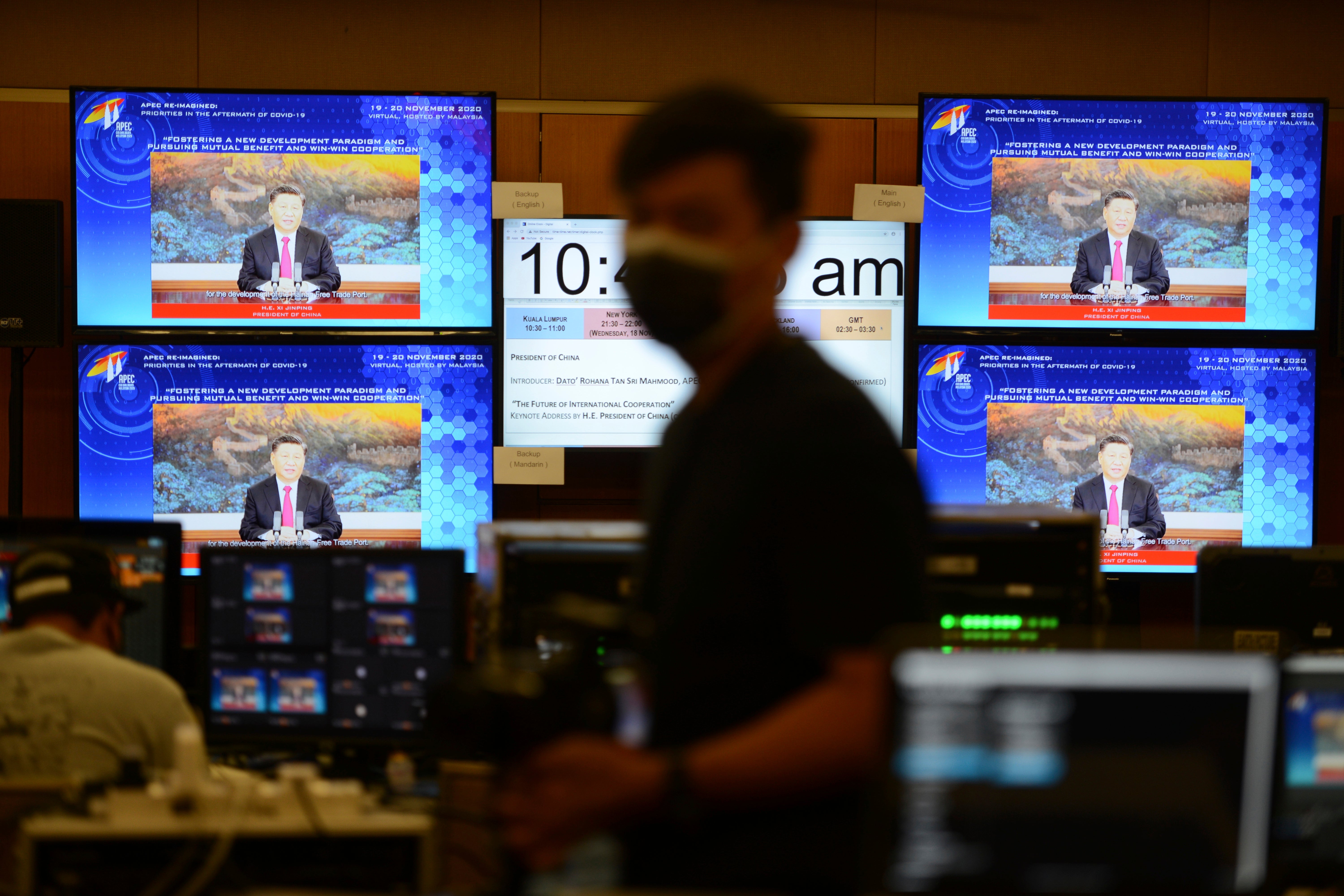Xi: China will avoid decoupling amid tension with US, Europe
President Xi Jinping has spurned suggestions that China might decouple or separate itself from the U.S. and other trading partners, amid tension with Washington and Europe over technology and security

Your support helps us to tell the story
From reproductive rights to climate change to Big Tech, The Independent is on the ground when the story is developing. Whether it's investigating the financials of Elon Musk's pro-Trump PAC or producing our latest documentary, 'The A Word', which shines a light on the American women fighting for reproductive rights, we know how important it is to parse out the facts from the messaging.
At such a critical moment in US history, we need reporters on the ground. Your donation allows us to keep sending journalists to speak to both sides of the story.
The Independent is trusted by Americans across the entire political spectrum. And unlike many other quality news outlets, we choose not to lock Americans out of our reporting and analysis with paywalls. We believe quality journalism should be available to everyone, paid for by those who can afford it.
Your support makes all the difference.China's President Xi Jinping on Thursday spurned suggestions that his country might decouple or separate itself from the U.S. and other trading partners, amid tension with Washington and Europe over technology and security.
Speaking by video link from Beijing to a meeting of Asia-Pacific CEOs, Xi promised to open China’s market wider but announced no initiatives to respond to complaints the ruling Communist Party improperly subsidizes and shields technology and other industries from foreign competitors.
Xi rejected suggestions Beijing might respond to U.S. sanctions on its fledgling technology companies by trying to separate their industries from global trading partners.
The ruling Communist Party has promoted its own standards for mobile phones and other technology, which would encourage customers that adopt them to use Chinese suppliers. That has prompted fears world markets might split into smaller segments with incompatible industry standards, hurting productivity.
“We will never go back in history by seeking to decouple or forming a ‘small circle' to keep others out," Xi said.
Thursday's event came ahead of a meeting of Asia-Pacific Economic Cooperation leaders hosted by Malaysia. The meeting Friday is due to be conducted via internet due to the pandemic.
Xi's comments followed Sunday's signing of the world's largest free trade agreement, the Regional Comprehensive Economic Partnership by Beijing and 14 other Asian neighbors.
The Chinese-initiated RCEP appeals to other developing countries because it reduces barriers to trade in farm goods, manufactured goods and components, which make up most of their exports. It says little about trade in services and access for companies to operate in each other’s economies, which the United States and other developed countries want.
The Trump administration has cut off Chinese tech giant Huawei’s access to most U.S. components and technology on security grounds. Washington has shut Huawei and a rival Chinese telecom equipment vendor, ZTE, out of the U.S. market. The White House is pressing the Chinese owner of video service TikTok to sell its U.S. operation, which American officials say is a security risk.
Xi promised to cut tariffs but gave no details.
“We will further reduce tariffs and institutional costs, cultivate a number of import trade promotion innovation demonstration zones, and expand imports of high-quality products and services from various countries," he said.
China’s repeated promises to set up trade zones and ease import restrictions prompt complaints by the United States, Europe, Japan and other trading partners that Beijing is using such isolated steps to avoid complying with promises made when it joined the World Trade Organization in 2001 to allow foreign companies to compete freely in its economy.
China is one of the world’s biggest importers, but the United States and other governments complain Beijing is dragging its feet on carrying out two-decade-old promises to open its markets to foreign competitors in banking, finance and other services.